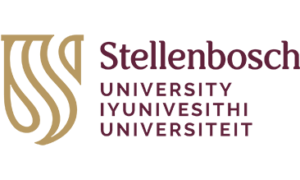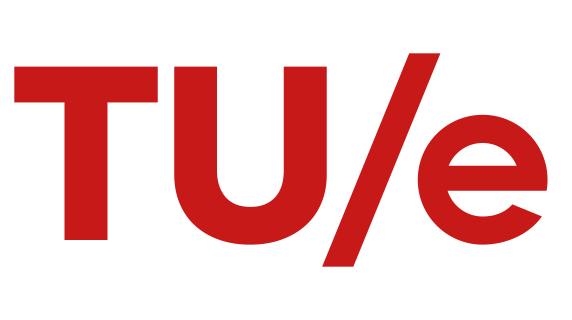Workshop on Advances in Knowledge Engineering, Reasoning, and Sensemaking (WAKERS), January 29th–February 2nd, 2024
Introduction
This fourth edition of the WAKERS workshop will have the theme
Digital Engineering and Knowledge Representation
With a move to more digital engineering for early validation, exploration etc., digital artefacts such as models, data, and knowledge representations beyond those (e.g. knowledge graphs) are increasingly prominent and relevant for engineering across disciplines; another interesting development of course is that in Large Language Models (such as OpenAI’s), which may help to provide insight into the plethora of data and information available in such digital engineering contexts.
Our aim is to bring together an international and diverse group of researchers, from computer science/software engineering, knowledge representation and reasoning, but also from other engineering disciplines.
Apart from 5-min. introductions and a few keynote and tutorials talks, the idea is to spend most of the week in parallel smaller groups working on topics of interest related to the week’s theme. The idea is that this would foster substantial progress on fleshing out joint research, concretely the strong start of a position or early results paper, funding proposal, or the likes. With this in mind, the goal would be that all participants participate for the full week, i.e. not just 1 or 2 days; though slight deviations from this general idea may be possible.
WAKERS 2024 is organised by the Computer Science Division of Stellenbosch University and the Software Engineering and Technology cluster of Eindhoven University of Technology (TU/e).


Schedule
The workshop will run from Monday morning January 29th until Friday February 2nd, ending with lunch. On Wednesday afternoon, there will be a social event.
Program
Workshop days start at 8:30 (coffee+tea) for 9:00 session start, running until 12:30. After lunch, 14:00–17:00. Coffee/tea breaks will be offered mid-morning and mid-afternoon.
On Monday morning, we will start with a short opening/intro by the organizers, followed by 3-5 minute / 2-slide introductions by all participants. On Monday afternoon and Tuesday morning and Tuesday right after lunch, we will have four 1-hour tutorials:
- David Baker Effendi, Code Property Graphs and the Joern tool chain.
- Eduard Kamburjan, Semantically lifted digital twins and programs.
- Maria Keet, Ontologies and Ontology Engineering.
- Hans Vangheluwe and Rakshit Mittal, Model validity.
We will also have PhD presentations by PhD students participating yet not involved in a tutorial. Confirmed:
- Johan Cederbladh, Early V&V in Systems Engineering.
Registration
Registration costs cover all coffee and lunch breaks, an excursion on Wednesday, and a workshop dinner. Registration fee will be €400 / €350 for non-student/student participants from high income countries; €250 / ZAR 5000 for staff from developing countries/South Africa, and €150/ ZAR 3000 for students from such countries.
Participants
- Shaukat Ali (Simula, Norway)
- Önder Babur (Wageningen University, The Netherlands; and Eindhoven University of Technology, the Netherlands)
- David Baker Effendi (Stellenbosch University, South Africa)
- Wolf-Tilo Balke (TU Braunschweig, Germany)
- Anton Basson (Stellenbosch University, South Africa)
- Lola Burgueño (University of Malaga, Spain)
- Johan Cederbladh (Mälardalen University, Sweden)
- Loek Cleophas (Eindhoven University of Technology, the Netherlands; and Stellenbosch University, South Africa)
- Istvan David (McMaster University, Canada)
- Robert Heinrich (Karlsruhe Institute of Technology, Germany)
- Eduard Kamburjan (University in Oslo, Norway)
- Maria Keet (University of Cape Town, South Africa)
- Jörg Kienzle (McGill University, Canada)
- David Manrique Negrin (Eindhoven University of Technology, the Netherlands)
- Brink van der Merwe (Stellenbosch University, South Africa)
- Judith Michael (RWTH Aachen, Germany)
- Rakshit Mittal (University of Antwerp, Belgium)
- Bedir Tekinerdogan (Wageningen University, The Netherlands)
- Hans Vangheluwe (University of Antwerp, Belgium)
- Thomas Weber (Karlsruhe Institute of Technology, Germany)
Venue
WAKERS will take place at the Wallenberg Conference Centre at the Stellenbosch Institute for Advanced Study (Google Maps/ Streetview). STIAS offers excellent, state of the art facilities. It is located about 1 km to the east of both downtown Stellenbosch and the Stellenbosch University Campus (interactive campus map), where a vibrant mix of students, tourists, and academics offers a pleasant atmosphere. Downtown Stellenbosch offers many shops, restaurants, wine bars, musea, tourist information offices, etc., while the surrounding winelands offer hundreds of wine farms, with many of them offering wine tastings, excellent lunch or dinner facilities, and beautiful views.
Travel
Stellenbosch is about 35 km / 30–45 minutes by car or shuttle from Cape Town International Airport (CPT), which has frequent direct flights to many hubs, including Amsterdam, Atlanta, Doha, Dubai, Frankfurt, Istanbul, London, Munich, Nairobi, Newark, Paris, Singapore, and Washington. In addition, Cape Town–Johannesburg is one of the world’s top 10 busiest airline routes, and more direct flights to many more international (including to the Americas and Asia), regional, and domestic destinations are available via Johannesburg.
From CPT, the best transfer option is to book an airport shuttle:
Note that some companies provide a direct taxi service which is more convenient but more expensive. Please contact the companies directly.
Stellenbosch is small and easily navigable by foot, and the venue is in walking distance to most hotels and B&Bs (1-2km / 10-20 minutes). You won’t necessarily need a rental car unless you are planning to stay on a wine farm, or to go on a road-trip before or after the conference.
Visa
Visitors from most EU countries, US, Canada, Japan, Australia and most of South America don’t need a visa to visit South Africa. The complete (official) list is available at the Department of Home Affairs. The Department also has the details for a visa application. Please contact us if you need an invitation letter to obtain your visa, and do so well in advance of the meeting!
Accomodation
Many B&B’s, hotels, and restaurants are within 10-15mins walk of STIAS. Stellenbosch offers a wide variety of different accommodation options. Prices range from below EUR 50 for very basic accommodation to EUR 200+ for top-end hotels; most B&Bs in and around town will be in the range from EUR 75 to EUR 125. Please make your own arrangements; common booking sites have many options, including staying at wine farms (which will mean travel time into and out of town / STIAS, which can be substantial during rush hours).
Social Events
Tuesday January 30th: Workshop dinner at De Vleispaleis, 19:00.
Wednesday January 31st: excursion to Stark-Condé winery (tasting at 14:00), and then splitting into two groups for Thelema and Tokara wineries after (tastings both starting at 15:30).
History
The Workshop on Advances in Knowledge Engineering, Reasoning, and Sensemaking (WAKERS) has been running as a recurring event in Stellenbosch, South Africa, focusing on software reengineering and knowledge extraction in 2017, on sense making in 2019, and on creating value from data in 2023.
About South Africa and Stellenbosch
South Africa, officially the Republic of South Africa, is a country located at the southern tip of Africa. It is divided into nine provinces and has 2,798 kilometres (1,739 mi) of coastline. To the north lie the neighbouring countries of Namibia, Botswana and Zimbabwe; to the east are Mozambique and Swaziland; while Lesotho is an enclave surrounded by South African territory. South Africa is the 25th largest country in the world by area and the 23rd most populous country with over 62 million people. [more at Wikipedia]
Stellenbosch is a town in the Western Cape province of South Africa, situated about 50 kilometres (31 mi) east of Cape Town, along the banks of the Eerste River. It is the second oldest European settlement in the province, after Cape Town. The town became known as the City of Oaks or Eikestad in Afrikaans and Dutch due to the large number of oak trees that were planted by its founder, Simon van der Stel, to grace the streets and homesteads. [more at Wikipedia]
The cost of living in South Africa is much lower than in Europe or the US. This is particularly true for tourist activities.
South Africa uses South African Standard Time (SAST), which is UTC+2, throughout the year (i.e. no separate summer time zone!). In January/February, this means it is ahead of Central European Time by 1 hour, and ahead of GMT by 2 hours.
Organizers
- Brink van der Merwe (Stellenbosch University)
- Loek Cleophas (Eindhoven University of Technology and Stellenbosch University)
Steering Committee
- Wolf-Tilo Balke
- Loek Cleophas
- Ina Schaefer
- Bruce Watson

